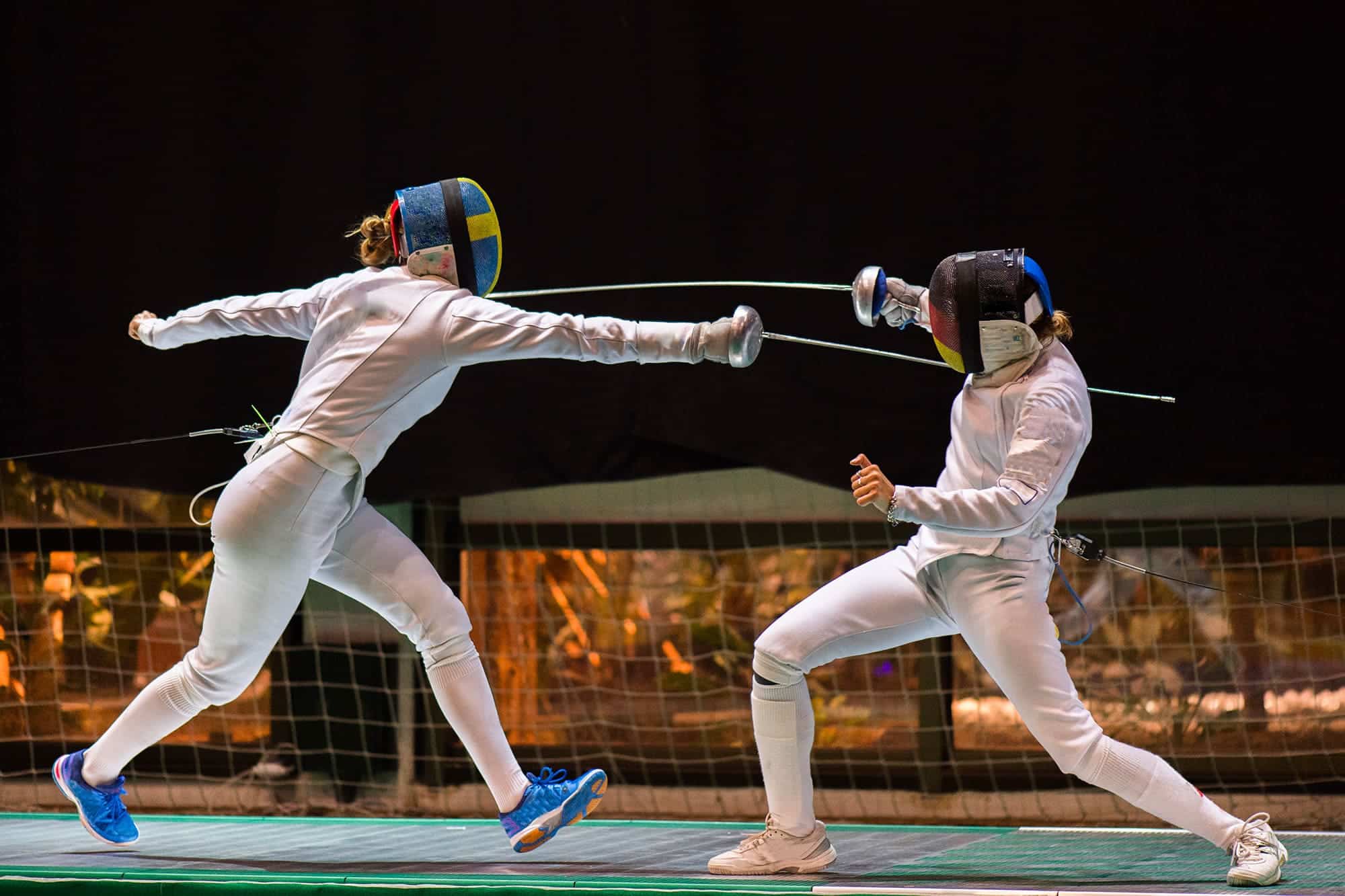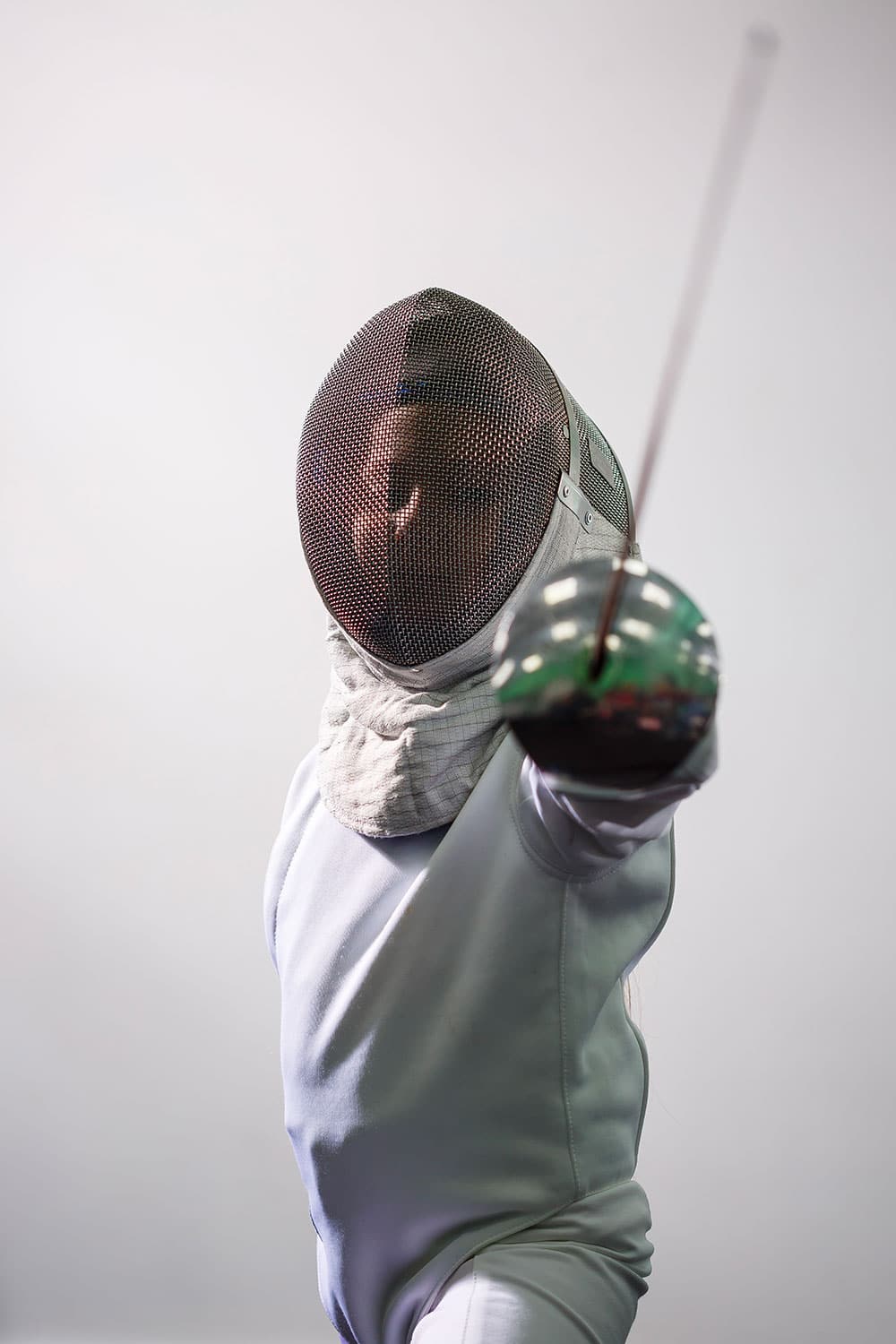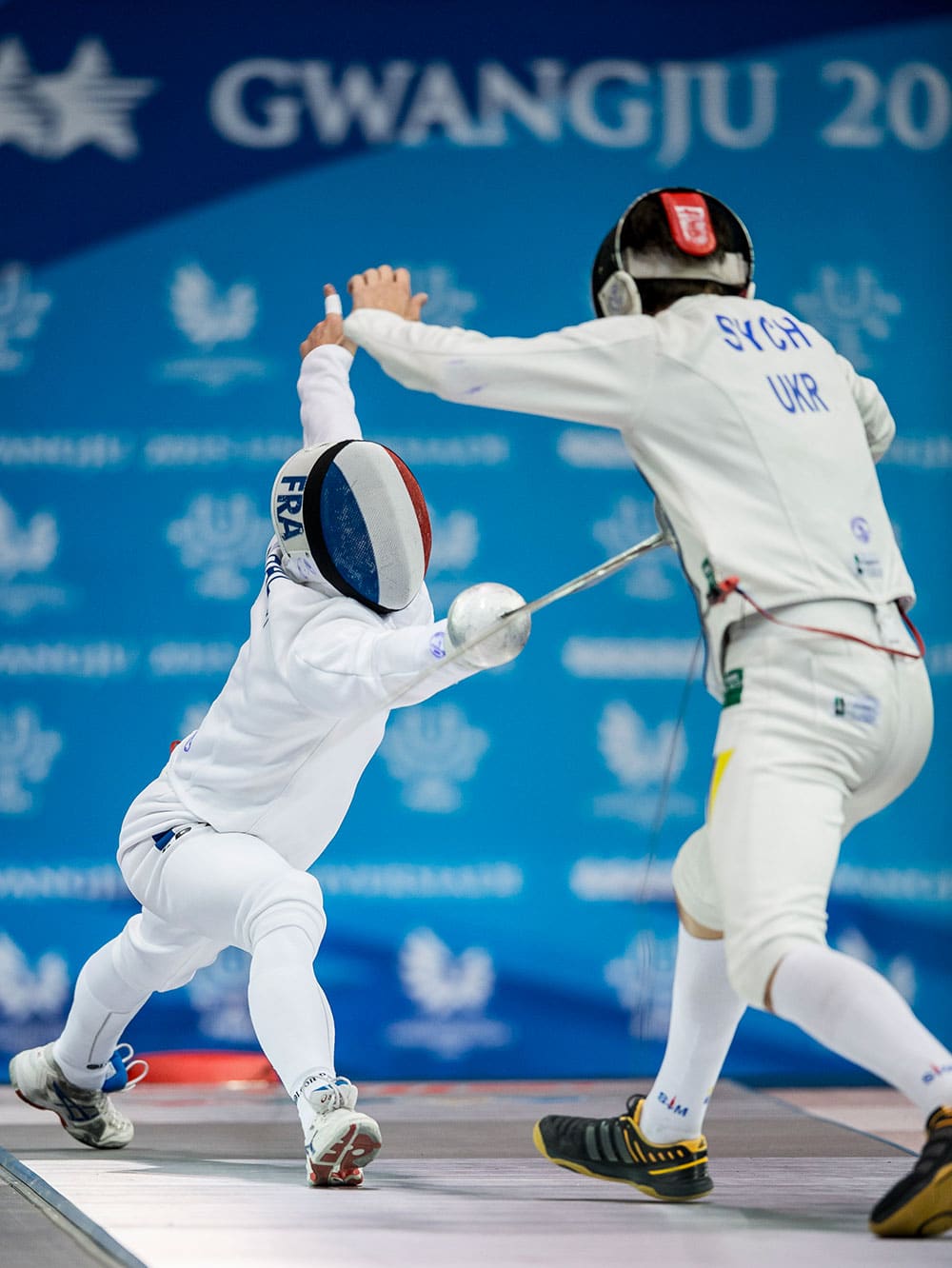A fencer can be fast with his arms, but if he is slow with his eyes, his gesture placement or his body’s alignment will not be optimal.
Moreover, it is a sport that puts athletes in perpetual dual-task situations. They are alternately attackers and defenders, and must change hats sometimes instantly, following a feint or an attack by their opponent.
Beyond the technical training that fencers follow, perceptive training can allow them to stand out. In particular, vision training, which has not been much explored for a long time.
However, the ability to see depth helps in the evaluation of distance and allows the programming of gestures according to the opponents’ speed or move. A neurovisual approach will notably improve :
It is with the Neural Trainer boxes and the different luminous stimuli that the eyes and the brain must treat in its place in the life of the fencer.
A sharp eye for a sure hit!
If you are a swordsman looking to improve your performance, Neural Trainer was made for you.

Daniel Popelin (formateur de cadres et Maître d'armes) explique que l’amélioration des réponses qu’un escrimeur apportera aux mouvements de son adversaire dépend bien sûr d’aspects techniques précis.But also on cognitive factors.
It is therefore a matter of combining neurovisual and cognitive approaches to adopt the best possible reaction.
If it is not always easy to quantify the contribution of training on a specific performance, it is still possible to retain a figure. In 2015, 35% of the athletes at this center offering cognitive training became European or world champions.
Fencing is a particular discipline where double task situations are constant.
This was the basis for researchers M. Gutierrez-Davila et al. when they published in 2017, their study entitled “Effect of dual-attention task on attack and defensive actions in fencing“.
How does a fencer react when his brain detects a mild stimulus? What type of defense does he or she implement in front of an attack?
To answer these questions, 25 fencers’ reactions have been studied.
When a fencer directs his weapon to threaten his opponent, he must manage new information (the double task). As attention is a limited resource, it would be logical for one of these actions (pointing the weapon at an opponent or responding to a new stimulus) to suffer from the accumulation of these activities.
However, the study shows that if reaction time increases and strength decreases. The dual task situation has no effect on the reaction time to a real attack.
One thing is certain: perceptual and attentional processes play a major role in a fencer’s performance in a competition.
Reaction time is at the heart of any action, and varies with the importance of a stimulus.



LCE Distribution